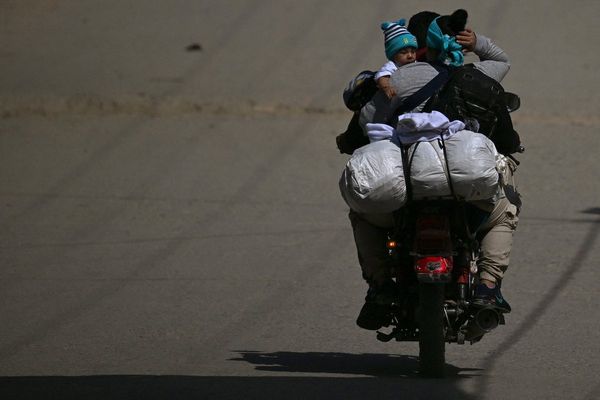
There is nothing new about Labour officials rigging parliamentary selections. In 1985, when I applied for Sunderland South, Labour’s north-east regional organiser instructed the local party not to circulate the details of applicants from outside the region.
Happily, when the party’s national organiser heard about this, she summoned him and ordered him to rescind his instruction. Whereupon the old rogue blurted out: “But you know what will happen, if I do?”
“No,” she replied. “And I don’t particularly care.”
“Chris Mullin will win.”
At least he was right about that. I went on to represent Sunderland South for 23 years, and in due course served as a minister in three departments and chaired one of the main select committees. These days I wouldn’t stand a chance of being selected. I had been on the losing side in the civil war that rent the Labour party in the late 70s and early 80s; and, having been editor of the leftwing journal Tribune, I could be seen coming from a long way off. Now the unseen hands at Labour HQ that appear to be systematically fixing Labour parliament selections would have blocked me at first sight.
What is new about the current purge is how shameless it is. In many ways, the apparent vetoing of Diane Abbott is not the most egregious example. She at least is in her 70s and has represented Hackney North for more than 37 years. This week, Lloyd Russell-Moyle, who has represented Brighton Kemptown since 2017, found himself out of a job aged just 37, apparently on the basis of a complaint about behaviour eight years ago which he strongly disputes and which there is no time to appeal.
Faiza Shaheen, a bright young economist who in 2019 came within a couple of thousand votes of defeating Iain Duncan Smith in the hitherto safe Tory seat of Chingford and Woodford Green, was told yesterday that she will not be readopted. Her alleged offence was liking improper posts on social media, but really seems to be that she continued to support Jeremy Corbyn long after such a position ceased to be fashionable.
When challenged on cases such as these, Keir Starmer’s stock response is usually that there is a process to be gone through, but the truth is there is no process. It is becoming clear that in these and other cases, the endorsement of candidates has been cynically delayed until the last moment precisely to ensure that there is no time for any argument or appeal before close of nominations.
Abuses of this kind will have consequences that the unseen hands behind the current wave on intolerance may not have anticipated. Indeed, they may not even care. In order to replace a candidate with a strong local following – especially one with as strong a following as Jeremy Corbyn – with a clone, the party apparatus will need to smash the local constituency party, thereby undermining years of hard work.
Some members will stay and fight, stoking up years of division, but others will simply walk away (Labour party membership has nosedived in recent years). In some cases, constituency parties will simply wither and die. That’s what happened in many of the safest Labour seats in years gone by – the constituency party I inherited was largely moribund.
There is another long-term consequence. The realisation that a single unwise tweet, however ancient, or even the mildest dissent from the official line, can be career-ending will have a chilling effect on debate within the party. As the political commentator Michael Crick has observed, all healthy governments need a degree of internal challenge. In governments of all parties, unwise or downright foolish initiatives are often quietly junked before they see the light of day as a result of threatened backbench rebellions. In 1997, New Labour faced an uprising almost immediately when Gordon Brown unwisely decided to implement a decision by the outgoing Tory government to cut benefit for single parents. It was too late to reverse the decision, but it was quietly compensated in the subsequent budget.
And who with the benefit of hindsight can say that the 139 Labour MPs (I was one) who rebelled over the government’s decision to help the US invade Iraq were wrong? Had he listened, Tony Blair’s reputation would not now be stained by the shadow of Iraq.
As Michael Crick says: “The people running the show are hugely partisan.” The likes of John Prescott, Robin Cook or Angela Rayner could never have been selected under the current management. Crick adds: “My own politics are rightwing Labour, but I am a pluralist. Good governments need internal challenge.”
Chris Mullin was the MP for Sunderland South from 1987 to 2010. He is the author of four volumes of diaries covering the politics of the past 28 years.
Do you have an opinion on the issues raised in this article? If you would like to submit a response of up to 300 words by email to be considered for publication in our letters section, please click here.







